
Why Do We Have Wisdom Teeth If They Often Cause Problems?
Introduction
Ah, wisdom teeth! Those pesky molars that show up uninvited during your late teens or early twenties. Just when you think your dental drama is over, in they come, often causing a ruckus. Most people experience issues with their wisdom teeth, like pain, infection, or crowding, leading many to wonder: why do we still have them?
Understanding the role of wisdom teeth isn’t just a dental curiosity. It’s a peek into our evolutionary history and how our dietary habits have changed over time. From an evolutionary perspective, these teeth were once essential for our ancestors. Today, as our jaws shrink and diets shift to softer foods, wisdom teeth often become more of a nuisance than a necessity. Let’s take a closer look at this intriguing dental dilemma.
Speaking of dental dilemmas, if you’re looking to step up your oral care game, consider the Oral-B Pro 1000 Electric Toothbrush. This toothbrush offers superior plaque removal, ensuring your mouth stays as clean as a whistle, even if your wisdom teeth don’t cooperate!

The Evolutionary Background of Wisdom Teeth
Understanding Wisdom Teeth
Wisdom teeth, also known as third molars, are the last set of molars to emerge. Typically, they make their grand entrance between the ages of 17 and 25. These molars sit at the back of your mouth, nestled behind the second molars, and are designed to help grind food. However, their positioning can create challenges.
Historical Significance
To truly appreciate wisdom teeth, we must first consider our ancestors. Early humans had significantly tougher diets than we do today, consisting mainly of raw plants, roots, and uncooked meat. These foods required substantial chewing power, leading to the need for extra molars. Larger jaws allowed these additional teeth to fit comfortably, enabling our ancestors to efficiently grind their food. Imagine chewing on a tough piece of meat without those extra molars—yikes!
As cooking became common and food softened, the necessity for wisdom teeth dwindled. Our jaws, however, have not kept pace with these dietary changes. Over generations, human jaws have shrunk while our genetic coding still triggers the development of wisdom teeth. This mismatch often results in the overcrowding and complications many face today.
In short, wisdom teeth were once a vital part of our dental toolkit. Now, they often feel like an unwelcome throwback to a time when chewing was a full-body workout. So, while they served a purpose in the past, today they mostly remind us of our evolutionary quirks and the ever-changing nature of our diets.
And while you’re pondering your dental history, why not brighten your smile with Crest 3D White Whitestrips? They’re a fantastic way to enhance your pearly whites without the need for a full dental makeover!
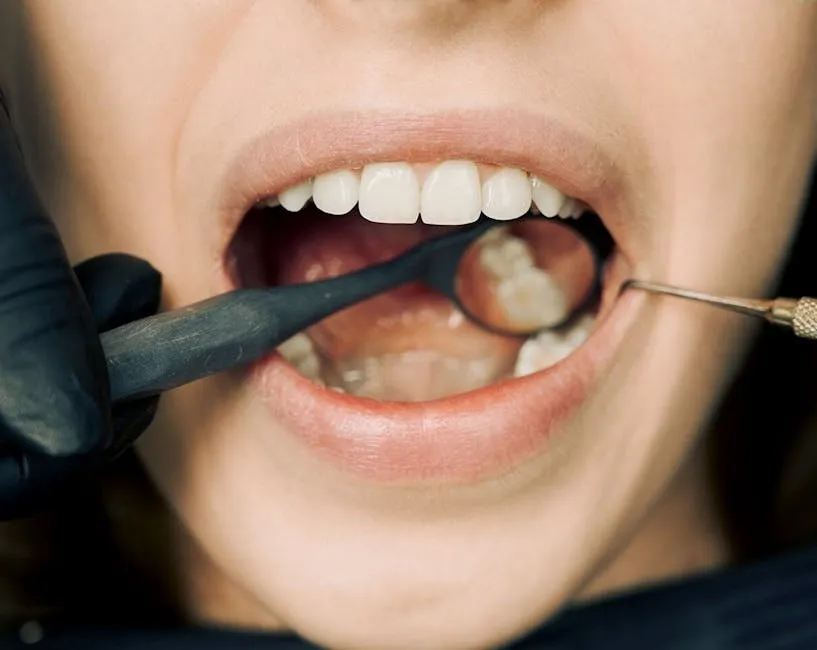
When Do Wisdom Teeth Erupt?
Typical Eruption Timeline
Now that we’ve covered the “why,” let’s tackle the “when.” Wisdom teeth typically decide to show up between the ages of 17 and 25. This age range can be a wild ride! Some folks might see them pop up earlier, while others might be left waiting well into their late twenties.
But here’s the kicker: not everyone gets wisdom teeth. Some lucky individuals may never develop them at all. In fact, research suggests that approximately 53% of people aged 25 and older have at least one wisdom tooth. This means your mouth could be a party of four or a quiet gathering of none!
If you find yourself in that crowded party, consider using Waterpik Aquarius Water Flosser. This handy gadget can help you navigate those tricky spots between your teeth, especially when your wisdom teeth are trying to take over your mouth!

Factors Affecting Eruption
Genetics play a starring role in the wisdom tooth saga. Some people are simply genetically predisposed to have more or fewer wisdom teeth. If your parents had complications with their wisdom teeth, you might want to keep an eye on yours.
But wait, there’s more! Impaction is a common issue that affects many wisdom teeth. When there’s not enough room for these teeth to emerge, they can get stuck beneath the gums. This situation can lead to pain, swelling, and even infection. It’s like your wisdom teeth are throwing a tantrum because they can’t join the party!
Understanding the causes of phantom limb pain can shed light on the complexities of pain perception and management. Why do we experience phantom limb pain after amputation
All in all, understanding when wisdom teeth erupt and the factors affecting their growth can help you manage any potential issues. So, keep your dental appointments regular and stay in touch with your dentist about your wisdom tooth situation!
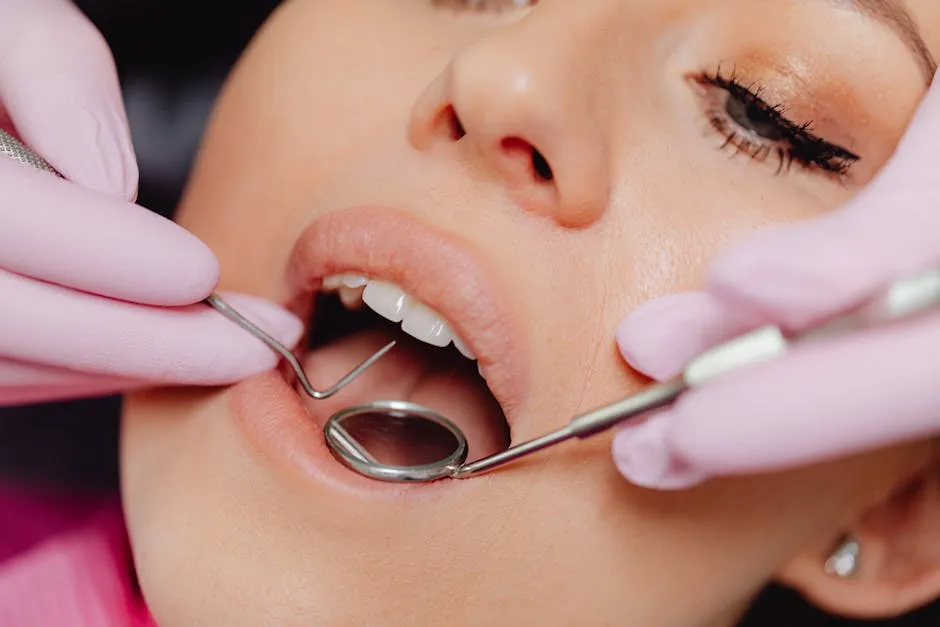
Common Problems Associated with Wisdom Teeth
Wisdom teeth, those four molars lurking at the back of your mouth, often come with a host of issues. Let’s break down the most common problems associated with these teeth, focusing on impaction, other related issues, and the telltale symptoms that signal trouble.
Impaction
Impacted wisdom teeth are a common dental dilemma. This condition occurs when a wisdom tooth fails to emerge fully through the gums due to overcrowding or an awkward angle. Instead of breaking through like a well-behaved tenant, these teeth remain trapped below the surface.
When wisdom teeth become impacted, they can lead to a range of complications. Pain is the first and most obvious symptom. It can feel like a dull throb or sharp jabs, making it difficult to chew, talk, or even enjoy your favorite foods.
But wait, there’s more! Impacted teeth can also pave the way for infections. The gum tissue covering the tooth can become inflamed and infected, a condition known as pericoronitis. This nasty infection can spread quickly, causing swelling, redness, and a not-so-pleasant taste in your mouth. If left untreated, it can lead to more severe dental issues, including decay and even the formation of cysts. So, what was once just a minor annoyance can spiral into a major problem.
To combat dry mouth that might arise from these dental issues, consider trying Biotene Dry Mouth Oral Rinse. It can offer relief and keep your mouth feeling fresh, especially when you’re dealing with the aftermath of wisdom teeth woes!
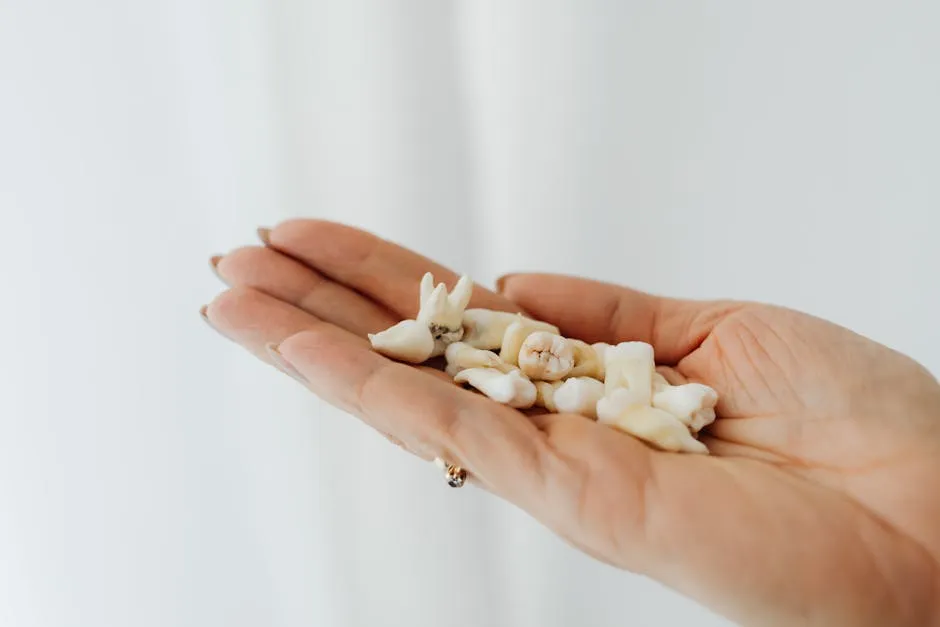
Other Issues
Crowding: Wisdom teeth can cause chaos in your mouth. When they try to push their way in, they can shove neighboring teeth out of alignment. This crowding can lead to malocclusion, where your teeth no longer fit together properly. Not the ideal situation if you’ve invested in braces or other orthodontic treatments!
Infection: As mentioned, infections like pericoronitis are common with wisdom teeth. This condition happens when food particles and bacteria get trapped beneath the flap of gum tissue surrounding a partially erupted tooth. The result? Pain, swelling, and potential for severe infection. Signs of infection include tender or swollen gums, red or bleeding gums, and even a bad taste in your mouth. If you notice these symptoms, it’s time to consult your dentist!
Damage to Adjacent Teeth: The pressure from erupting wisdom teeth can wreak havoc on neighboring molars. This added pressure can lead to decay in adjacent teeth due to difficulty in cleaning those hard-to-reach areas. If your wisdom teeth are making themselves known, it might be time to consider dental options.

Symptoms of Wisdom Tooth Problems
So, how do you know if your wisdom teeth are causing trouble? Here are some common symptoms to watch for:
- Pain: This can range from a dull ache to sharp, stabbing feelings, often radiating to your jaw or ear.
- Swelling: Noticeable swelling around the gums or jaw could indicate that something’s amiss.
- Bad Breath: Persistent bad breath, even after brushing, can signal decay or infection.
- Difficulty Opening Your Mouth: If you find it hard to open your mouth fully, this could be due to swollen gums or pressure from an impacted tooth.
If you’re experiencing any of these symptoms, it’s essential to seek advice from your dentist promptly. Early intervention can prevent more serious issues down the line. Remember, ignoring the signs won’t make them disappear—your wisdom teeth might be wise, but they often don’t play nice!

Treatment Options for Wisdom Tooth Issues
Monitoring and Management
Regular dental check-ups are crucial for monitoring wisdom teeth. Your dentist can keep a close eye on their development and identify potential issues before they escalate. This proactive approach helps prevent complications like impaction, decay, or infections.
For those dealing with mild discomfort or infections, there are non-surgical management options available. Over-the-counter pain relievers can provide relief from discomfort. Antimicrobial mouthwashes may help reduce inflammation and bacteria buildup. Warm saltwater rinses are also beneficial for soothing swollen gums.
In some cases, antibiotics may be prescribed to tackle infections. Keeping your mouth clean can prevent bacteria from taking hold. However, if symptoms persist, seeking professional advice is essential. Ignoring the signs might lead to more severe problems down the road.
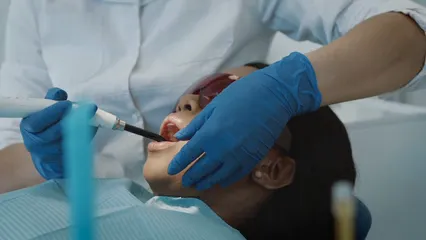
If you’re looking for a toothpaste that goes the extra mile, consider Colgate Total Whitening Toothpaste. It’s fantastic for keeping your teeth bright and your mouth feeling fresh, especially when you’re navigating wisdom tooth challenges!
Surgical Removal
Wisdom teeth are often recommended for removal due to their potential to cause issues. If they are impacted or their growth threatens the alignment of other teeth, extraction becomes a viable option. Dentists usually recommend removal before the roots fully develop, as younger patients tend to heal faster.
The surgical procedure itself involves numbing the area with local anesthesia or sedation. The dentist or oral surgeon makes incisions in the gums and may need to remove bone surrounding the tooth. Once the tooth is extracted, the incision is closed with stitches.
Recovery typically takes a few days, but some discomfort may linger for a week. Following your dentist’s post-operative care instructions is essential. This includes avoiding certain foods and activities to promote healing.
Extracting wisdom teeth comes with risks, but the benefits often outweigh them. Post-surgery, you’ll likely experience relief from pain and reduced risk of future complications. Keeping problematic wisdom teeth can lead to overcrowding, infections, or damage to adjacent teeth. Consulting a dentist for a personalized assessment is key.
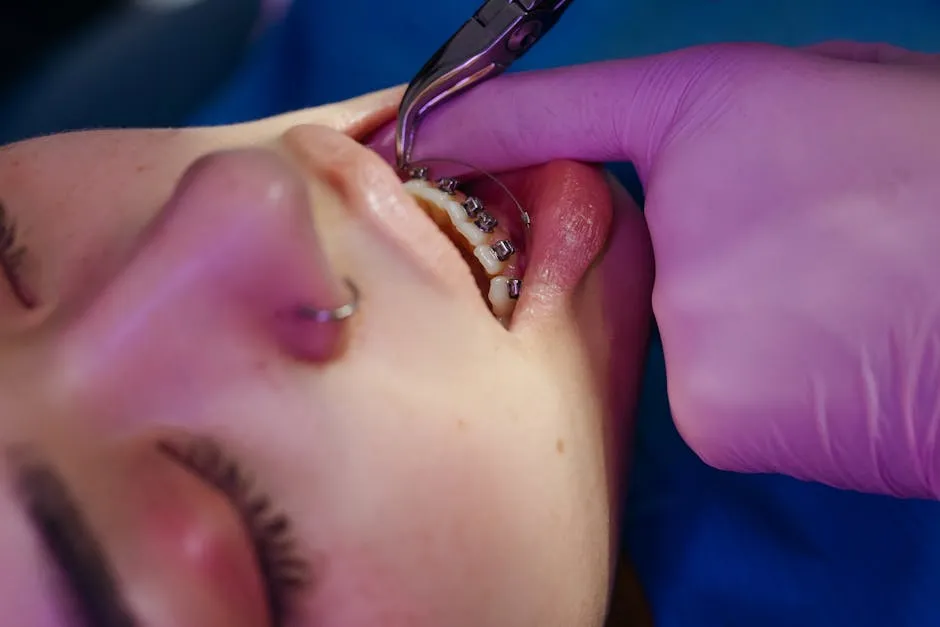
The Future of Wisdom Teeth: Are They Becoming Obsolete?
Evolutionary Trends
Wisdom teeth may be on their way out. With each generation, fewer people seem to develop these extra molars. Some scientists posit that modern diets and dental care have rendered wisdom teeth less necessary. As we shift to softer, more processed foods, the need for extra grinding power diminishes.
As human jaws continue to shrink, the space for wisdom teeth becomes more limited. This evolution suggests that future generations might not need wisdom teeth at all. Some studies indicate that up to 35% of people may be born without them altogether.

Scientific Opinions
Experts are increasingly discussing the diminishing necessity of wisdom teeth. They argue that our ancestors required these teeth for survival, but modern lifestyles render them largely redundant. Research indicates that the prevalence of impacted wisdom teeth is likely to continue decreasing.
While some individuals still experience problems with their wisdom teeth, the trend points toward obsolescence. This shift raises intriguing questions about our evolutionary future. As we adapt to changing diets and lifestyles, wisdom teeth may eventually become a dental relic, much like the appendix.
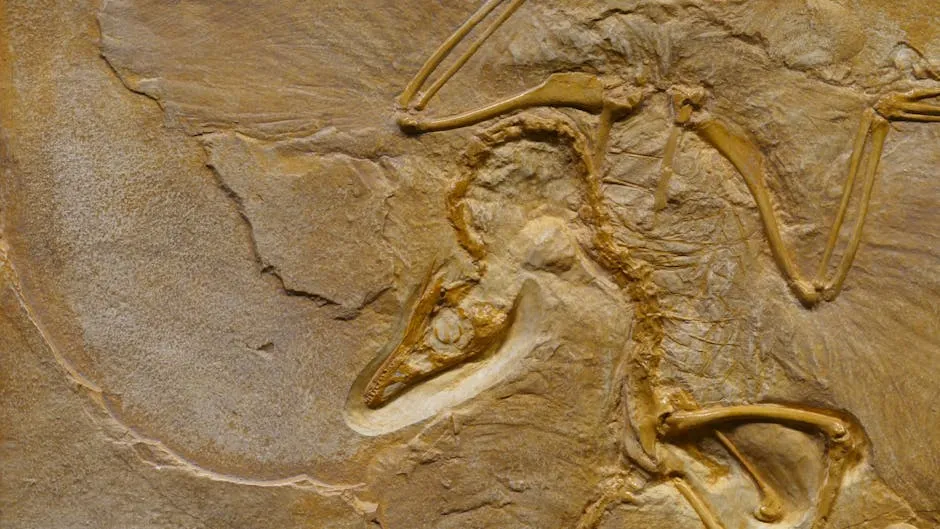
Current Research
Recent studies shine a light on the prevalence of wisdom teeth and the complications they bring in modern populations. It turns out that about 53% of adults aged 25 and older still have at least one wisdom tooth. However, many of these individuals encounter issues, with research indicating that nearly 90% will experience some form of impaction or misalignment.
Furthermore, anthropologists suggest that as human diets shifted from raw, tough foods to softer, cooked meals, the need for extra molars diminished. This transition has led to smaller jaw sizes, making it difficult for wisdom teeth to emerge properly. A significant number of people may never develop wisdom teeth at all, showcasing genetic variability.
Overall, the current research highlights that while wisdom teeth were once essential for our ancestors, they are often problematic today, leading to complications like pain, infection, and crowding. Regular dental check-ups are crucial for monitoring these teeth, ensuring any potential issues are addressed before they escalate into more significant problems.

And don’t forget to keep your mouth fresh with a good mouthwash! Listerine Antiseptic Mouthwash is a classic choice that helps keep your breath fresh and your mouth healthy!
Conclusion
In summary, wisdom teeth often feel like uninvited guests at a party, showing up late and causing chaos. While they seem unnecessary in our modern dental lineup, these molars played a significant role in our ancestors’ survival. They helped grind tough foods, allowing early humans to thrive on a rugged diet.
Today, as we enjoy softer meals and smaller jaws, wisdom teeth often cause more headaches than help. The evolution of our diets and dental structures highlights how these once-essential teeth have become vestigial.
If you’re grappling with wisdom tooth woes, don’t hesitate to consult your dental health professional. They can provide tailored advice on whether your wisdom teeth should be monitored or removed. Remember, staying informed is key to maintaining a healthy smile!
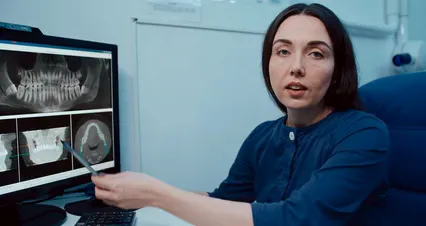
FAQs
Do all humans have wisdom teeth?
Not everyone develops wisdom teeth. Genetics play a major role in determining how many, if any, wisdom teeth you have. Some people may have one, two, three, or none at all. About 95% of the population has wisdom teeth, but variations are common.
Can wisdom teeth grow back after removal?
Once removed, wisdom teeth do not grow back. The procedure is typically straightforward, and the teeth are permanently eliminated from your mouth. So, rest assured, you won’t have to deal with them again!
What should I do if I experience pain from my wisdom teeth?
If you’re feeling pain around your wisdom teeth, it’s time to consult your dentist. Symptoms like swelling, difficulty opening your mouth, or persistent discomfort may indicate an issue. Early intervention can prevent more serious complications down the line.
Are there any benefits to keeping wisdom teeth?
If your wisdom teeth are healthy, aligned, and not causing problems, keeping them might be beneficial. They can provide support for your jaw and assist with chewing. However, regular dental check-ups are essential to ensure they remain trouble-free.
Is wisdom tooth removal necessary for everyone?
Not everyone needs to have their wisdom teeth removed. Dentists typically recommend extraction only if the teeth are impacted or causing problems such as pain, infection, or crowding. Each case is unique, so consulting with a dental professional is crucial.
Please let us know what you think about our content by leaving a comment down below!
Thank you for reading till here 🙂
All images from Pexels




